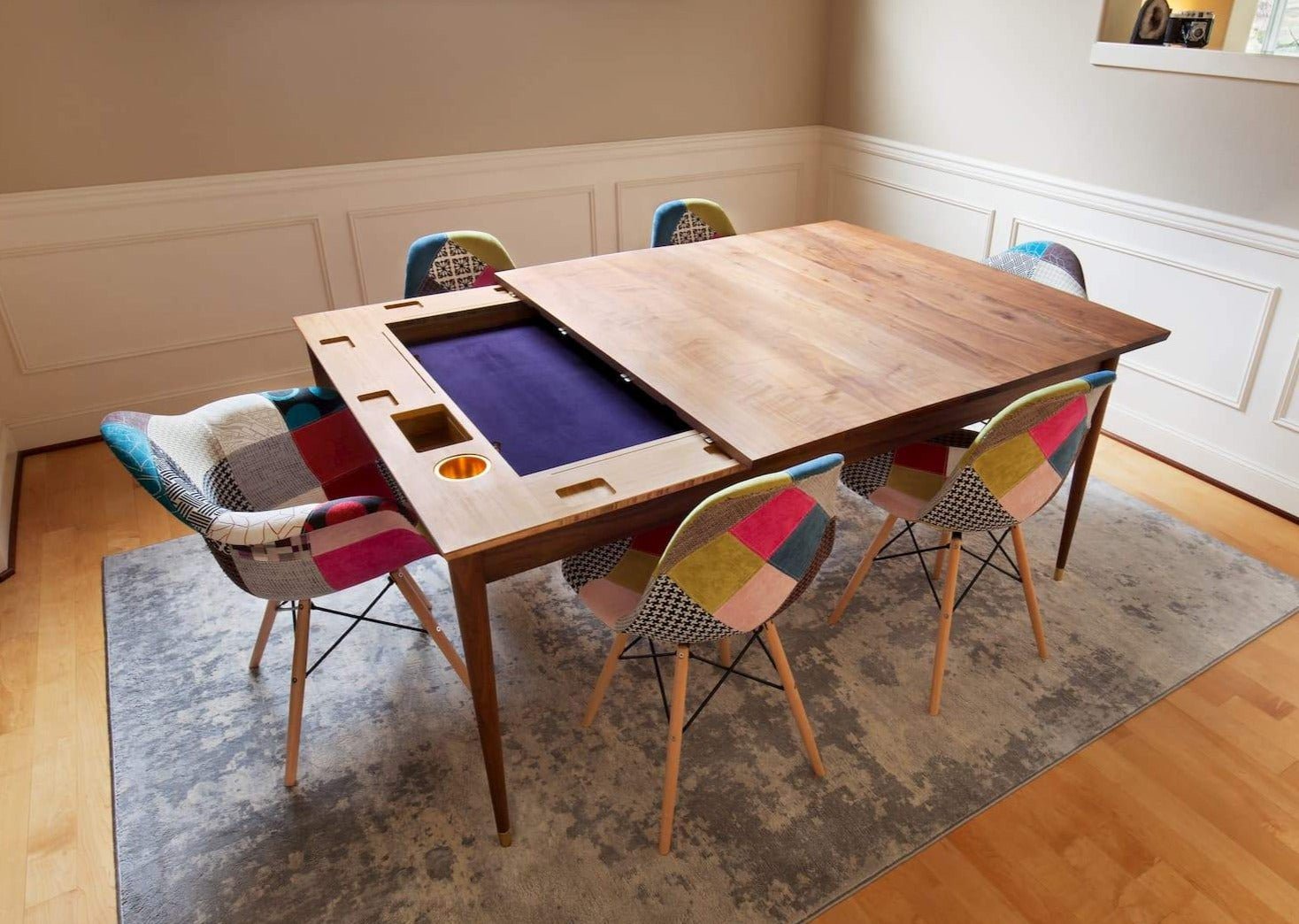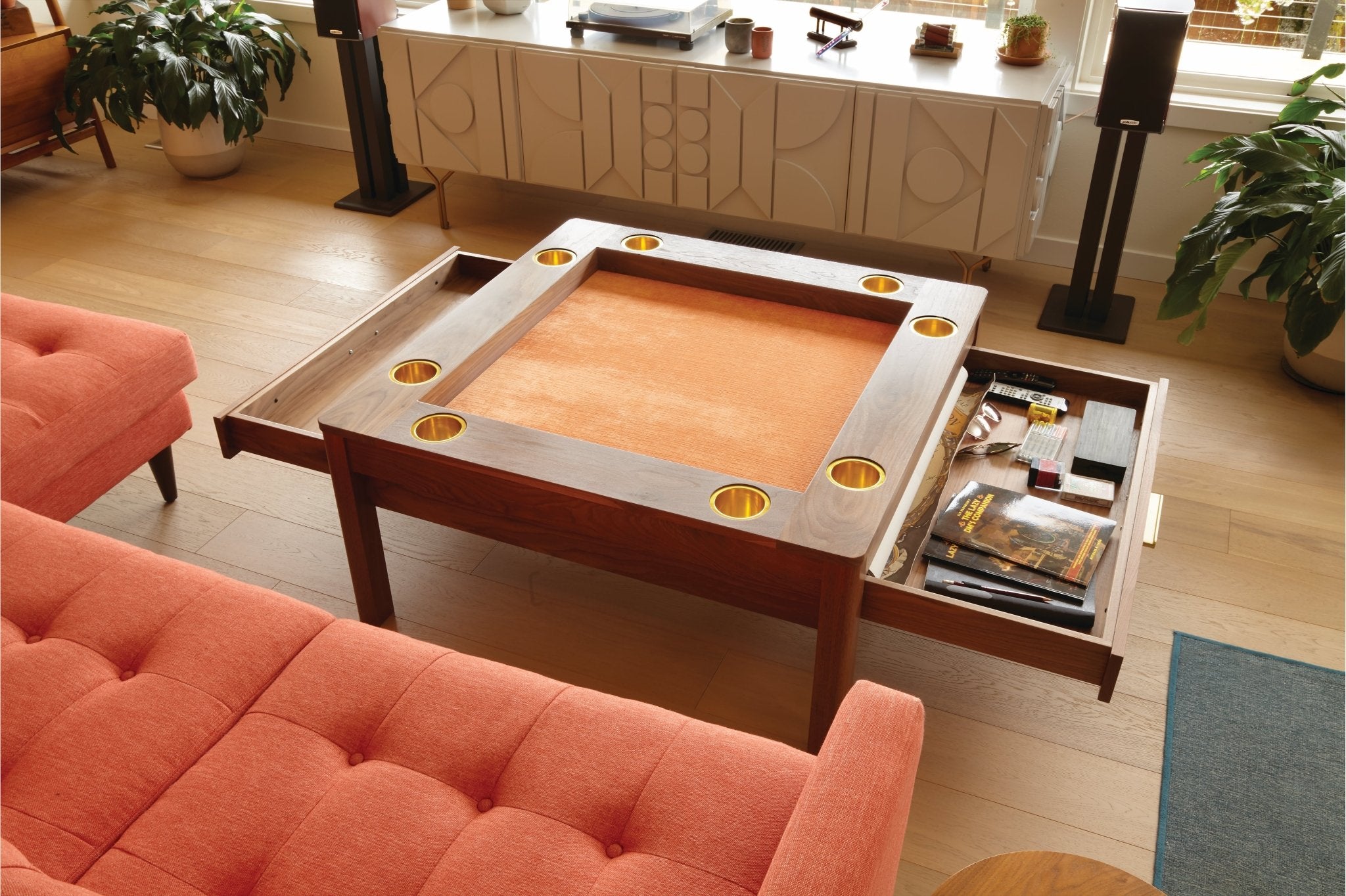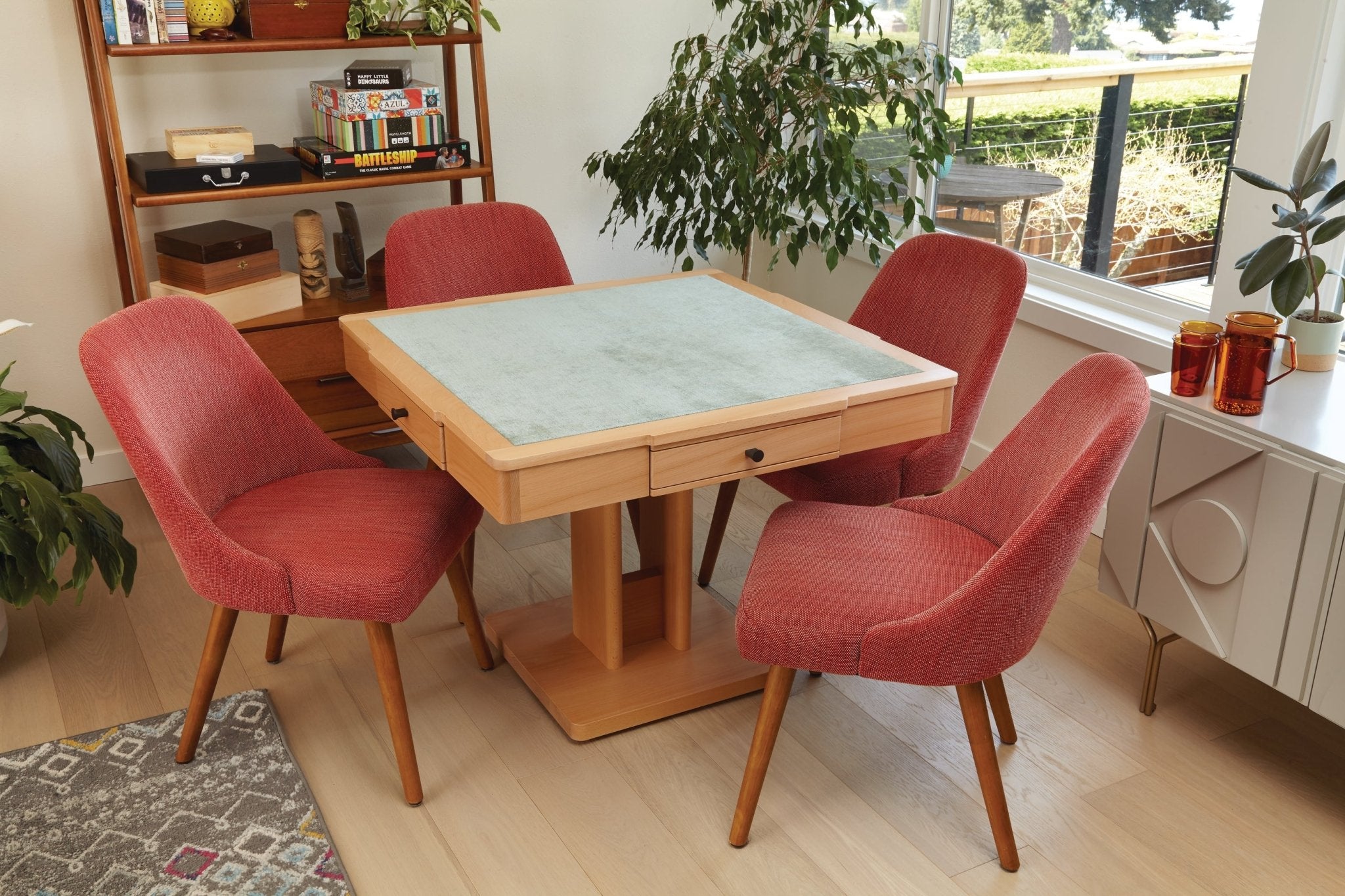Types Of Board Games: A Guide For Gamers
You love board games but are still trying to figure out exactly what type of board game best suits your playstyle. Well, you're in luck! There are tons of different types on the market, with different game mechanics and styles to suit any player.
In this guide, we'll discuss the most common types of board games you can find, although the sub-categories are pretty much endless! Still, if you're wondering which ones will suit your preferences the most, then it's time to brush up on your board game knowledge.
Whether you like strategic gameplay or more casual gaming experiences, let's take a closer look at what different board game types have to offer.

1. Abstract Strategy Games
Abstract games are all about strategy but don't usually have a specific theme—it's all about the moves you make and how you outsmart other players. For example, games like chess focus on nothing but gameplay, where every move counts!
Typically, this type of game system forces you to think ahead, which can really help to keep your brain sharp.
2. Area Control Games
In area control games (which are also strategy-focused board games), you'll need to move carefully to claim different territories and outmaneuver your opponents. A great example of this type of game is Risk—one of the best board games on the market.
To come out on top, you'll need to expand your empire and defend your turf, as every move brings you closer to victory. Just be sure to plan your moves carefully, or you may end up being outsmarted.
3. Campaign And Legacy Games
Campaign and legacy board games create stories that change with every playthrough; however, the two differ slightly.
-
In a campaign game, every session usually pushes the story forward.
-
Legacy games also evolve every session, but players can permanently change the gameplay as they go.
These co-op games have become super popular in recent years, with modern variations like Pandemic Legacy and Gloomhaven taking center stage.
4. Dexterity Games
Dexterity games put your precision and balancing skills to the test, since many of them are all about quick reflexes. So, it's no surprise that they make for great party games!
Not all of them involve an actual game board, though. Instead, you'll have different game setups and mechanics—think of classics like Flick 'em Up and Jenga. Still, they're all designed to test your physical skills, so get ready to move your body!
5. Deckbuilder Games
In deckbuilding games, you'll need to pick up and build a deck with the cards you're dealt during gameplay. Unlike typical card or deck construction games where you build your deck before you start playing, your deck is reliant on the luck of the draw. So you have to make do with what you're given.
Great examples of these are Harry Potter: Hogwarts Battle and Dominion, where you play using the game board and the cards you're holding.
6. Drafting Games
In drafting games, every one of your picks matters. For example, in Sushi Go! and 7 Wonders, you'll need to pick cards from a shared pool. But it's trickier than it seems! You'll also have to keep an eye on what other players are picking up and discarding since it can give you some insight into their strategy. And, if you're sharp enough, you can stay one step ahead of them to secure your victory.
These make perfect multi-player games, so they're a good pick for parties or family game nights. They're also fast-paced and exciting without requiring much setup or learning complicated rules.
7. Engine-Builders
In an engine-building board game, you'll need to build a store of resources and generate more and more stuff over time. These puzzle games challenge you to create a system that churns out resources or victory points. Of course, the more you build, the better your setup will become. In turn, you'll get even faster results and inch closer to triumph.
Some examples include Century: Spice Road, Res Arcana, and Race for the Galaxy.
8. Eurogames
Eurogames are the perfect balance of strategy and skill. In games like Paladins of the West Kingdom and Agricola, you'll have to plan carefully and make the right moves. Since there isn't much room for luck, your strategy becomes your greatest weapon.
These can also be categorized as worker-placement games, as you need to assign your workers to specific spaces to gather resources, build structures, and create your empire.
The real fun comes in through competing with clever resource management and long-term planning. It's the perfect pick for your next game night if you want to encourage some friendly competition.
9. Push-Your-Luck Games
If you're less into strategy and more into luck-based games, then this category is a great choice. Risk-takers love the thrill since you'll have to keep playing to test your luck. You can either keep going for bigger rewards or bow out before everything comes crashing down.
Games like Port Royal and Deep Sea Adventures will have you drawing cards or rolling dice and holding your breath—just hoping that your risky moves have paid off!
10. Dice Games
Roll-and-move games are classic dice games that are ideal if you want a lot of fun without complex game mechanics and rules. The best examples of these board games include Monopoly and The Game of Life, where your dice do all the work. Your rolls will determine your moves and whether you win or lose, so there's a lot of luck involved.
So, if you want the perfect game for a laid-back game night with friends or family, we'd highly recommend investing in some roll-and-move board games.
On the other hand, roll-and-write games like Yahtzee are similar but require you to make decisions on the fly. In these, you'll need to record your dice rolls to make strategic decisions and pave your way to victory.
11. Social Deduction Games
Get ready to grab your friends and test their honesty with social deduction games like One Night Ultimate Werewolf.
Here, you'll need to stay sharp and question everything. The aim of the game is to figure out who is working against the rest of the group by lying and hiding their true identity.
These games are incredibly fun and your chance to channel your inner Sherlock (or try your luck at fooling your friends and family with your bluffing skills).
FAQs
What type of board game is most popular?
Some of the most popular board game types include roll-and-move, Eurogames, and deckbuilding games. While roll-and-moves are a classic choice, Eurogames and deckbuilding games have become a lot more popular over the last few years.
Of course, if you love board games, you should choose a few that suit your playstyle. So, if you're more into deduction than deckbuilding, you should pick games that match that!
Do I need any special equipment to play board games?
No, you don't need any special equipment to start playing. Rather, these games typically come with all the elements and pieces you need to play.
If you're a hardcore player, though, you can always invest in other accessories and equipment to make your experience even better. For example, you can invest in a table with special features that can improve your gameplay.
Are board games the same as tabletop games?
Yes, they are the same as tabletop games, since they are usually played around a gaming table or on a flat surface.
However, it's important to remember that tabletop games aren't always board games. Instead, this is a broader category that includes several sub-categories. Essentially, all board games are tabletop games, but not all tabletop games are considered board games.

Final Thoughts
With so many board games on the market, your choices are endless! But now that you know exactly which ones will suit your interests and playstyle, you can confidently start adding a couple of new titles to your collection.
Just remember that although a game may fall under a certain category, not every one will have the same kind of gameplay. For this reason, the easiest way to know whether you'll like a game isn't based on what category it falls into; it's based on how much you enjoy playing it, so it's always a good idea to test new games out if they interest you!



